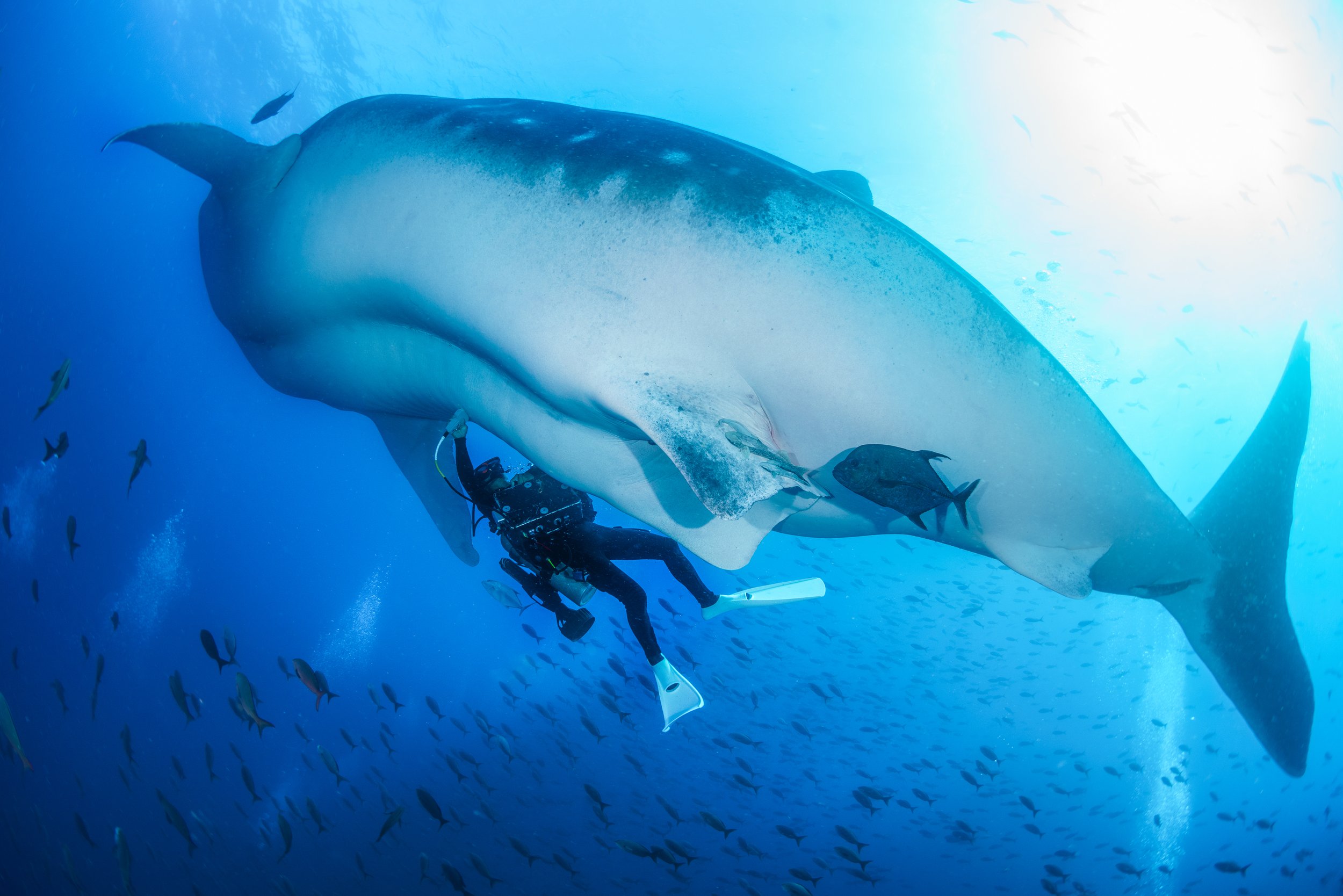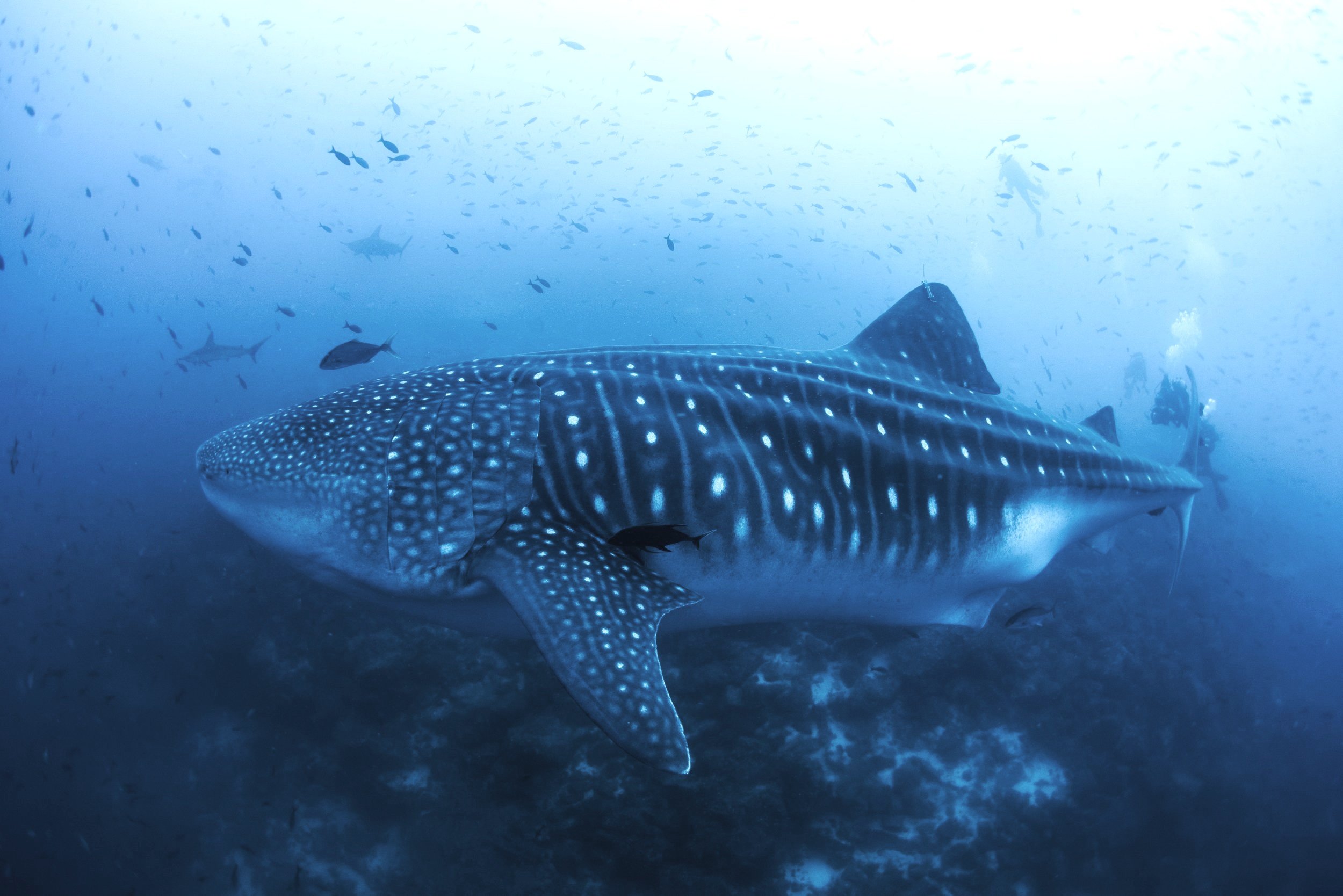Dr. Clare Prebble
Senior Scientist
Google Scholar Instagram Website Research Gate
clare[@]marinemegafauna.org
Research Interests
As a central member of the Global Whale Shark Program team, Dr. Clare Prebble has been at the forefront of the emerging field of biochemical ecology and its application to movement and feeding studies. Completing her PhD on whale sharks in 2018, Clare's research interests focus on understanding the secret lives of these megafauna species. Utilizing the "you are what you eat (and where you eat it)" principles of biochemistry, she investigates their migratory patterns and true dietary habits. Her geographical emphasis is on Southern Africa, particularly Mozambique and Tanzania. While Clare enjoys fieldwork with whale sharks, she and also spends considerable time analyzing tissue samples in the lab and examining data on the computer.
Education
2018 Doctor of Philosophy (PhD)
Southampton University, Southampton, U.K.
Thesis title: Residency and Trophic Ecology of Juvenile Whale Sharks (Rhincodon typus) in the Western Indian Ocean
2009 Master of Science Ecology, Evolution and Conservation (MSc)
Imperial College London, Berkshire, U.K.
Thesis title: Behavioural Responses of Wood Mice (Apodemus sylvaticus) to Direct and Indirect Predator Cues
2007 Bachelor of Science, Zoology (BSc)
Durham University, U.K.
Thesis title: The Distribution and Behaviour of Angelfish Species (Pomacanthidae) on Coral Reefs in The Wakatobi National Marine Park, Indonesia
Biography
Clare has always had an interest in travel and exploration. Being an ‘expat-kid’ for most of her formative years, she and her family lived in several countries in Asia, the Middle East and Africa. Her parents introduced her to the amazing diversity of species and environments in each place and she developed a respect and affinity for the natural world early on.
While she was equally enthralled by the terrestrial wildlife of Southern Africa until well into her 20’s, it was the warm waters of the Indian Ocean that finally captured her full attention. The whale shark research project in Tofo, Mozambique offered a career of meaningful research in a picture postcard location. In the following ten years, proudly part of the MMF research team, Clare completed her PhD, travelled the world from the Galapagos Islands to Madagascar, and has since become an avid wildlife photographer.
Current MMF projects
Clare is an integral member of the Global Whale Shark Program team, focusing on Southern Africa. She primarily utilizes her biochemistry expertise to address research questions. Additionally, Clare aims to apply these skills to studies on other megafauna species and data-deficient, vulnerable elasmobranchs in the Bazaruto Archipelago, Mozambique.
Global Whale Shark Program
Media
Featured papers
Limited latitudinal ranging of sharks in the Western Indian Ocean suggests the existence of regional management units. Prebble C, Rohner C, Pierce S, Robinson D, Jaidah M, Bach S, Trueman C (2018) Marine Ecology Progress Series.
Laser photogrammetry improves size and demographic estimates for whale sharks.Rohner C, Richardson, A, Prebble C, Marshall, A, Bennett, M, Weeks, S, Cliff, G, Wintner, S, Pierce, S. (2015) . Peer J.
Acoustic telemetry reveals cryptic residency of whale sharks. Cagua F, Cochran J, Rohner C, Prebble C, Sinclair-Taylor T, Pierce S & Berumen M (2015) Biology Letters.













MMF continues to play a key role in supporting the identification of critical marine habitats.